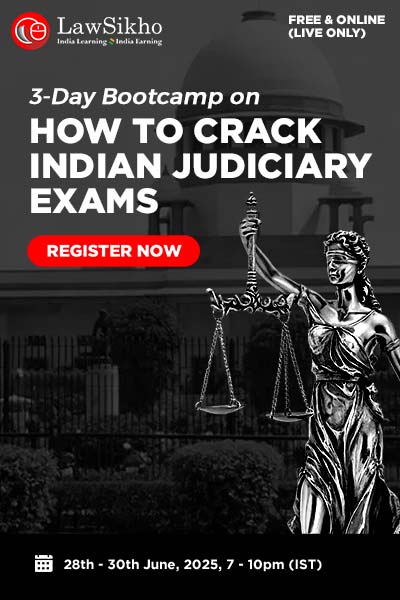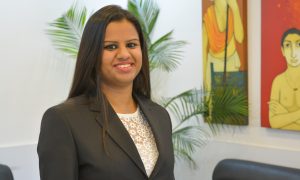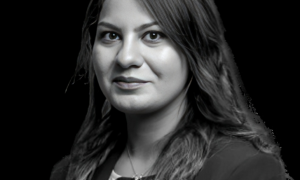This interview has been published by Prabhjot Singh, Priyanka Karwa and The SuperLawyer Team

What motivated you to choose law and how do you see the competition since the time you started pursuing your career?
I remember back in high school, my dad asked me to pick a career path. I didn’t know what it’d be at that time but I wanted something that’d combine both my passions, strategy & public speaking. When I did pick law, it wasn’t so much for altruistic reasons as wanting to do something intellectually stimulating, that I’d really enjoy.
I don’t believe you truly discover an industry until you’re neck deep in it. Popular media would have you believe law’s all sunshine & rainbows but there’s just as much trudging through the trenches before you get to the meadows.
To that end, it’s highly competitive. Wanting out of the rat race means deeply honing your craft, developing highly effective & transferable
skills & often, specialising in a single niche. If you’re able to do that & enjoy it, the competition becomes healthy & the profession rewarding!
There was a time Ananya when we had no advancements in terms of tech tools for legal projects, now it has changed, what are your views on the same?
I have to be honest, I was blessed enough to enter the profession when indexing apps & research softwares were a thing & I’m all the more thankful for it.
There’s a lot to be said about legal tech. In a number of ways, it’s revolutionised the way we get things done, more so in this era of remote work. The automation & efficiency has led to increased client satisfaction which lends itself to greater profitability & wider market reach.
However, we’re talking about tools at the end of the day. A sword is only as good as the man who wields it. It’s how lawyers leverage the tech available to them that ultimately determines their true utility.
Ananya, our audience wants to know what are the advantages and disadvantages for a Non-Nlu Student?
Ah the self-limiting titles we impose upon ourselves! I always had my sights set on the NLUs. Everyone I spoke to, everything I read, had led me to believe that was the only way to go. So when due to a rough period in my life, I couldn’t go to one, despite qualifying for one of the best NLUs in the country, I felt lost.
For a huge chunk of time, I struggled with a strange sort of handicapping disappointment. The thought of graduating from a lesser known university can undermine your confidence. But knowing what I do now, I wouldn’t get too hung up on the stigma.
The only merit NLUs have over non-NLUs is the launchpad they provide to your career in terms of perceived value & the opportunity to network with other budding lawyers & professors who perhaps share the same amount of passion as you. Beyond that it’s really each man to his own.
The advantage of being a non-NLU graduate is it forces you out of your comfort zone. You’re not spoon-fed the best resources. You empower yourself, through observation & error. You go beyond the bare minimum, adding more job-ready skills & achievements to your repertoire. It teaches you to become more enterprising. It’s a long winded journey but the hard work pays off multifold eventually.
Do you think Ananya that these new aspects such as NFT’s, Blockchain etc violate the standards of privacy and secrecy?
Privacy legislations, from their inception, weren’t drafted keeping blockchains & NFTs in mind. For that reason, while I don’t believe they’re averse to privacy per se, I do believe there’s a strong need to rethink our regulations to keep up.
As things currently stand, NFTs & blockchain technology may provide a strong illusion of anonymity, but the inherent risks to privacy can’t be overlooked. Data protection guarantees like the right to be forgotten don’t extend themselves to blockchain autonomously, the standard of cybersecurity currently deployed to protect NFTs is dubious at best & identity theft in this space is a legitimate concern.
Striking a balance between steadily growing technology & the delicate boundaries of privacy might just be the solution.
Any specific roadmap you followed for the IAPP certification programme?
IAPP provides comprehensive, albeit sometimes confusing, guidelines on how to prepare for their certifications exams. Where most people get stuck is understanding the practical application of things. You see, IAPP tests you, not on how much you can memorise & learn but what you can apply & help operationalise. And the textbook only goes so far with that.
The roadmap I followed was learning with a mentor. Your journey becomes so much easier when you have someone to show you the ropes. It really comes down to doing things the right way. Do you just want to pass an exam for the sake of it? Or do you want to learn how things are done so you can do your job properly? One gets you a piece of paper that can only get your foot in the door & the other gets you the role, the promotion, the pay hike & the credibility.
AI will take the job of Lawyers, how far do you think this will happen? Or Maybe you think that has already started happening?
Law, at its very core, is innately human. AI is an aid, not a solution. While indispensable in its utility, I don’t believe it’ll ever replace lawyers.
That said, the tech we use today does cut into a huge chunk of the market that was traditionally sourced by entry-level workforce. However, I like to look at it as an inevitable but temporary impediment to demand, that will ultimately create more opportunities for lawyers to step away from menial tasks & come into more skillset rich roles.
AI can help you draft, monitor, recommend & even predict, but it’s ultimately dependent on human judgment to bring it to fruition & I don’t see that changing anytime soon.
If not a lawyer, what Ananya Patil would have been in life?
I’d love to be an author! There’s something about putting pen to paper that’s so gratifying. I’d love to play with words, weave emotions into them & tell stories.
Some advice for our young law professionals?
Look at yourself as a business. You are after all, a brand in & of yourself. Like every business, you need to invest in yourself to grow. It’s a skillset based market.
What skills can you pick up to cater to the demand? If no one’s buying your product, you’re not targeting their needs effectively.
What tweaks can you make to your CV? Good customer service often births resounding word of mouth. Is your client happy with your work?
Most people don’t realise they can create opportunities for themselves. That’s where you can gain an edge. Network & observe.
What problems can you solve? Being a great lawyer is seldom only about the law. Yet, that’s where the majority gets hung up. Look beyond the conventional & brainstorm ways to differentiate yourself.
Get in touch with Ananya Patil-

























